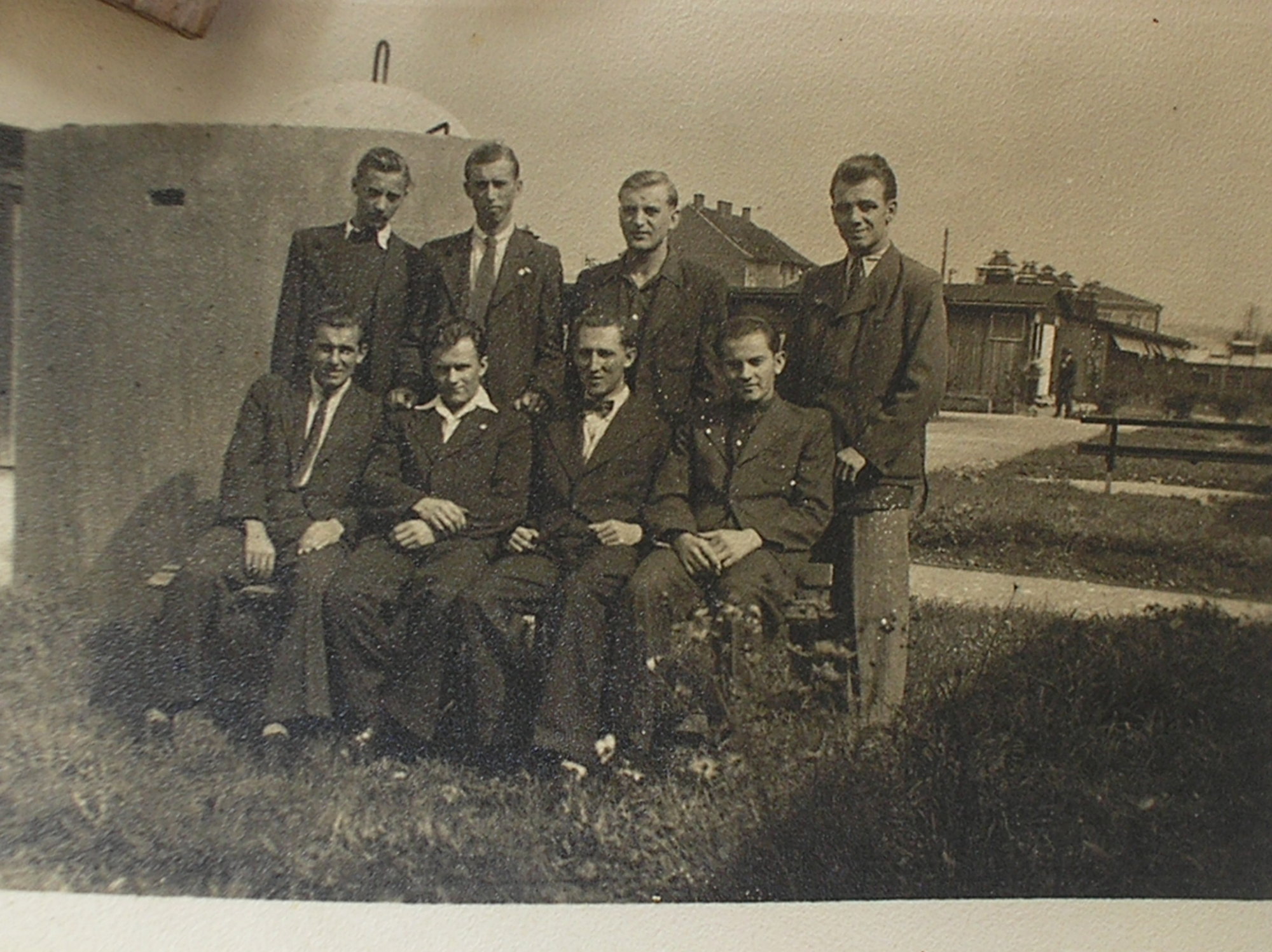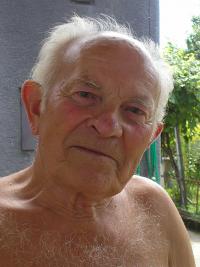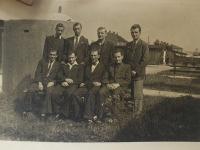"Everything was underground there. It was all corridors, the factory was all corridors. There was steam, there was air and electric cables. Those were wide, lighted corridors. And so there were lights there, on one side there was air, steam and stuff like that. And on the other there would be cables. That was all underground. That was the shelter. That was our sleeping place for the night, mostly. When things worked, the pumps, then we hid inside. And our foreman looked for us. He had this hand pump and we always got hit by this squirt of water, as he was spraying us, so we rushed out of there. There were loads of nooks and crannies there. We thought it was great fun. And he used to curse: 'Hund, Hund, tschechische Hund...' He was angry at us for sleeping. That was for sure, we were supposed to be doing something. The Germans often rode to work on bikes. And we went the opposite direction, a group of us from the camp, and we didn't get out of their way. We said: 'Look, he's on a bike. Let's not get out of his way. What will he do?' We were young, we took it as fun. And one time he took a pistol to us. He didn't do anything, but we got out of the pretty fast, and let him ride by. We were a bit dumb at times. There were warnings aswell. There were labour camps with convicts, along our road to work. And many times there was someone hanging from the gallows. As a warning. We passed by, saw two or three on the gallows. I don't know what punishments they had. It was war. I tell you, Linz was beaten to pieces. Just piles of rubble in the end. When there was the first air raid, then some people propped their walls or other stuff, windows were boarded up. Some of those houses were wreckages afterwards. The bombed all the time, the factory they did. Even the town was blown to pieces. And again they cleared it up fast, so that the electricity would work again. They always managed to patch it up. Terrible, that war, terrible. What could we do. We got through it."


